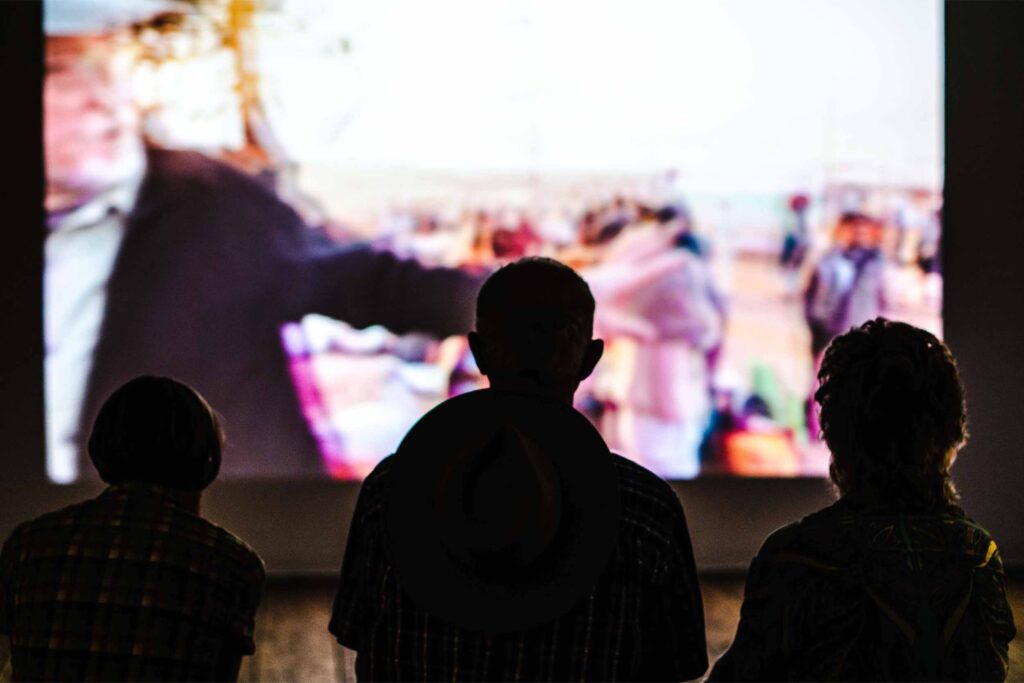The Kyrgyz authorities are seeking to introduce controls over the screening of audio-visual materials during festivals, conferences and trainings, in a move that rights’ groups consider a further restriction of basic freedoms.
The ministry of culture is working on a draft resolution that would introduce a mandatory state license for any video material to be screened publicly. This would extend the current rules, which apply only to film distribution. The amendments would require film facilities, distributors, festivals and workshop organisers to obtain permission from the Film Centre Kyrgyztasmasy state enterprise.
Rights’ groups, including Bir Duino, the Media Policy Institute and the legal association Adilet, asked for the document to be withdrawn, stating that it violated norms and principles set forth in both the Kyrgyz constitution and international legal documents.
According to Adilet, the draft introduces “significant restrictions of the freedom of opinion, freedom of expression and artistic freedom…in our opinion, the requirement to get a mandatory license for demonstration of any audio-visual product, including for organisers of film screening at festivals, workshops and other events, is a direct government censorship”.
Adilet argued that the constitution prohibited the adoption of regulations that restrict rights and freedoms.
Experts also note that the document is unclear, allowing wide interpretationsand potential misuse. Kyrgyztasmasy stated that it would focus on events held by civil society organisations, but there was no clear definition of what “audio-visual works” and “events” the measure would target.
“Holidays and weddings fall under the event category,” Bishkek-based lawyer Timur Arykov told IWPR. “At our weddings, newlyweds often show a mini-film, a love story to their guests. Legally, such videos would now need to be licensed. This is absurd.”
The proposal also fails to set a timeframe as to when the authorities should either issue a state license or decide to prohibit screening and distribution.
The Kyrgyztasmasy has rejected such criticism.
“The amendments are based on new realities and challenges,’ Pariza Borbieva, head of Kyrgyztasmasy’s distribution department, told IWPR. “NGOs have started to hold various events and screens films of various genres. The issue has become relevant and festival films should also be checked. We came to the conclusion that we should put both workshops and festivals on the list.”
Borbieva said that the board would be independent from the authorities as the commission aimed to protect intellectual property and copyright with no bureaucratic hurdles.
She added that if anyone doubted the legality of Kyrgyztasmasy’s decision “they can go to court”.
INCREASING RESTRICTIONS
The proposed bill adds to Kyrgyzstan’s expanding list of measures restricting the activities of media and NGOs.
In 2021, amendments to a law entered into force that meant non-profit organisations had to submit additional annual financial reports. In October 2022, the draft bill on non-commercial NGOs introduced burdensome registration and operational restrictions and required existing groups to re-register, raising concerns that authorities could use the process to force some to close. The bill has yet to be approved.
On September 28 2022, the presidential administration drafted a new law on mass media. The original draft would allow the government to “restrict freedom of speech, freedom of the press and other media in a state of emergency and war according to the constitutional law”. The draft also introduces other restrictions, prompted, according to the authors, by the “urgent need” to bring existing media law in line with the constitution adopted in April 2021.
Widely criticised, the bill has been modified four times. Members of the working group said that the document still retained provisions, including the mandatory registration of all websites with the ministry of justice, that could eliminate sites objectionable to the authorities.
Film directors and other industry representatives maintain that Kyrgyztasmasy is the regime’s puppet. One director, Mederbek Zhalilov, said that he doubted both the agency’s competence and objectivity.
Zhalilov’s film Meken (Homeland) about the confrontation between villagers and mining developers won international awards but was banned in Kyrgyzstan in 2020. The ministry of culture stated it contained propaganda relating to the violent seizure of power and incitement to hatred.
“Our film was the first national film prohibited for distribution in the history of the board,” Zhalilov told IWPR. “[Usually] a person sits, receives a copy of the film, even a draft version, without sound. He or she does not care about the content; they just run through it and issue a permit. But in our case, they fulfilled an order from above because we unveiled corruption.
“Their claims were absurd [like] ‘the woman wears black clothes, she’s at the cemetery, which contradicts our traditions,’” he concluded.
In 2022, Kyrgyztasmasy banned eight foreign films on the grounds that they featured forbidden elements such as pornographic or violent scenes or war propaganda. Three of them were Russian films about Ukraine’s region of Donbas.
Film festivals have also been targeted. In 2022, the 16th Bir Duino – Kyrgyzstan, a festival dedicated to human rights, was targeted by the authorities, which originally prohibited the screening of films about the war in Syria and the elections in Belarus. Protests led to the ban being lifted. However, these obstacles were arbitrary as the current resolution does not entail close control over the screening of films.
“Until today, some organisations, at their own initiative, practised getting the distribution license for the films to be shown at festivals. In reality, Kyrgyztasmasy could not control each film distributed in the country,” said Arykov, adding that the draft bill had the potential to change that.
In late March, human rights organisations provided their proposals to the draft law and asked the government and parliament to withdraw the amendments. They noted that if the resolution came into effect, they would challenge it at all levels possible.
Source: IWPR


